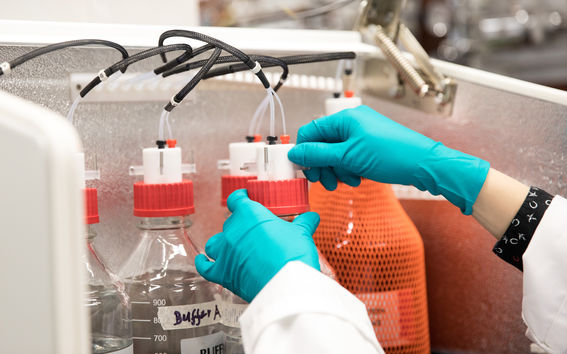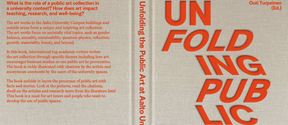How to motivate people to comply voluntarily with necessary restrictions – 13 principles for effective COVID-19 related communication

Update on 4 January 2021: Typos corrected in the English version.
An effective response to a pandemic like the COVID-19 will only be successful if people voluntarily follow the rules and guidelines of decision-makers and experts. Many of the required measures, such as avoiding social contact and significantly changing our daily habits require a strong commitment. Other necessary actions, such as regular hand washing, are often impossible to monitor and enforce. Adherence to the guidelines thus depends on people’s personal commitment.
The ability of policy makers and experts to communicate convincingly to citizens has a strong influence on whether people voluntarily motivate themselves to change their behaviour and maintain new behaviours.
Based on a large body of existing research, four leading researchers of self-determination theory, Frank Martela (Aalto University), Nelli Hankonen (University of Helsinki), Richard M. Ryan (Australian Catholic University) and Maarten Vansteenkiste (Universiteit Gent) have crystallised 13 communication principles to foster voluntary compliance in a crisis such as COVID-19. The Communication Principles have been approved for publication in the prestigious European Review of Social Psychology (download the manuscript accepted for publication).
What is needed: Improving justification and understanding
According to the researchers, the coronavirus related communications of Finnish politicians and officials have been relatively calm and neutral in its tone, and have wisely appealed to people's sense of responsibility and solidarity. Still, there’s room for improvement in clarifying the arguments to increase the public’s understanding.
‘At times, the communication of policy makers and experts has not been very transparent, and there hasn’t been enough clarity about the assessments and research on which the recommendations are based. This creates unnecessary rumours and counter-arguments,’ says Frank Martela, a postdoctoral researcher at Aalto University.
‘I'm not sure how widely citizens initially understood why, for example, asymptomatic people should use face masks. In order for people to make sensible choices in their daily lives, they need to understand the mechanisms of spreading and controlling the disease. In order to optimise communications, we would need up-to-date information on what are the most serious misunderstandings or concerns of citizens,’ assistant professor Nelli Hankonen from the University of Helsinki says.
Measurable health effects obtained by following communication principles
The 13 principles of communication that the researchers have crystallised are based on self-determination theory, which is a widely studied and applied theory of the human motivation and its social determinants. Hundreds of empirical studies from different areas of life, from health care to working life, have shown that supporting autonomy is essential to getting people to voluntarily commit to guidelines. The communication principles developed within the theory have been shown to provide tangible health-related outcomes in, for example, diabetes prevention, tobacco cessation and long term medication adherence.
The communication guidelines developed by the research team are structured around how they support the three human psychological needs for autonomy (a sense of volition and self-endorsement), competence (a sense of effectiveness and mastery), and relatedness (a sense of mutual care and interpersonal connection). In particular, the experts and decision-makers should make sure that their way of communication doesn’t awaken defiance.
While many of the guidelines have not been directly tested in policy communication context, they provide the researchers’ best efforts to propose strategies likely to have positive effects on people’s voluntary motivation based on currently available evidence in other domains.
13 principles for effective COVID-19 related communication
| Communication principle | How to communicate according to the principle? | Practical example |
|---|---|---|
| Provide a meaningful rationale. | Always explain the reasons and justifications for various rules and guidelines. | Clarify the evidence-based reasons behind any restrictions such as physical distancing rules: what is avoided, what is gained by following the rules. Always explain the mechanisms: why does a restriction have an effect. |
| Treat people as responsible agents. | Treat people as active agents that can make responsible and informed decisions. Emphasise that their choices make a difference. | Tell that the prevention of virus depends on the choices and contributions we as individuals make, thus requiring each of us to take responsibility in doing our part. Appeal to their responsibility and show willingness to trust them. |
| Use non-controlling, informational language. | Use informational, non-judgmental language that conveys freedom of choice and collaboration. Avoid pressuring and controlling language. | Avoid controlling and guilt-inducing phrases such as ‘you must’ that awaken defiance. Instead, show respect by appealing to people’s values and sense of responsibility. Use autonomy-supportive phrases like ‘we have a chance’ and ‘now we can’. |
| Appeal to the aspirations, goals, and values of the people. | Support desired behaviours by connecting them with what matters to people. | Highlight the value of protecting everyone, especially vulnerable people – everyone knows and cares about someone vulnerable. |
| Within necessary limits, provide choice on how to adhere to the rules. | Even within constraints, allow people to make choices where possible and decide their own way of adherence. | Be, e.g., clear about what kinds of outdoor activities can be safely done and how people can freely choose from among these; encourage on-line connectedness and show different alternatives on how to follow the same restrictions. |
| Communication principle | How to communicate according to the principle? | Practical example |
|---|---|---|
| Provide concrete instructions, clear expectations, and formulate collective goals to strive for. | Offer people clear guidance on what behaviour is required, concrete instructions on how this behavior is achieved & specific goals to strive for. | Provide exact instructions to different situations such as when and how to practice hand hygiene. Formulate collective goals with clear critical parameters that are constantly followed. |
| Provide constructive, clear, and relevant feedback on how successfully people have adhered to the measures. | Provide relevant, tailored, and timely feedback about how well people are doing and how their efforts have been progressing. | Communicating statistics about the success of social distancing measures and how the measures have helped to flatten the curve as regards infections, or decreased the number of ICU patients. |
| Address key obstacles for change. | Identify what the likely barriers that people may have to behaviour change, and provide instructions on how to overcome them. | In promoting, e.g., the use of face masks, fund masks to those with financial difficulties. In terms of hand hygiene, appropriately timed and situated reminders help people remember when hands should be washed. |
| Communication principle | How to communicate according to the principle? | Practical example |
|---|---|---|
| Acknowledge people’s own perspectives, feelings, and potential conflicts. | Demonstrate that you recognise the barriers and obstacles people may have to engaging in key behaviours to convey empathy to them. | Clearly acknowledge people’s feelings and the economic hardships, loneliness, and sacrifices many people are accepting as side effects of adhering to the guidelines. |
| Emphasise and facilitate shared identity and common fate. | Build a sense of shared identity and common fate among the people affected by the crisis. | Emphasise how we are all in this together. Remind people that the crisis touches each of us in various ways. Share inspirational stories of how people help each other. |
| Build trust through transparent and open communication. | Communicate what is known – and also what is not known – in a timely and transparent way to the public. | Be transparent about risks and uncertainties in the current knowledge. Publish models, estimations, and assumptions upon which the government is building the strategy. |
| Identify trusted messengers to mediate the guidelines to various groups. | Use people who can legitimate the message and bring it in a trustworthy way to various groups and communities. | Use health professionals to communicate health guidelines rather than politicians. For various subgroups, try to identify trusted people within that community to act as messengers. |
| Appeal to people’s natural willingness to help each other. | Willingness to help other people can be a powerful motivation. Appeal to it. | Emphasise how we can help others, especially vulnerable risk groups, even by simple steps like staying home. |
Read the research article
Contact:
Researcher, Ph.D. Frank Martela, Aalto University
[email protected], mobile +358 50-5707916
- Published:
- Updated:
Read more news

The Most Beautiful Books 2023 - The Finnish Book Arts Committee awarded several Aaltonians
Personnel and alumni were awarded in various categories
FinnCERES and the joint Nordic research project on smart textiles are showcased at the World Circular Economy Forum in Brussels
The exhibition features innovative bioeconomy products and prototypes of textiles responsive to temperature and light.
The New European Bauhaus festival brought together European decision-makers and experts in cross-sectoral sustainable development
Aalto University participated in the New European Bauhaus Festival with its sustainable construction exhibition, Time out! Rethinking construction.